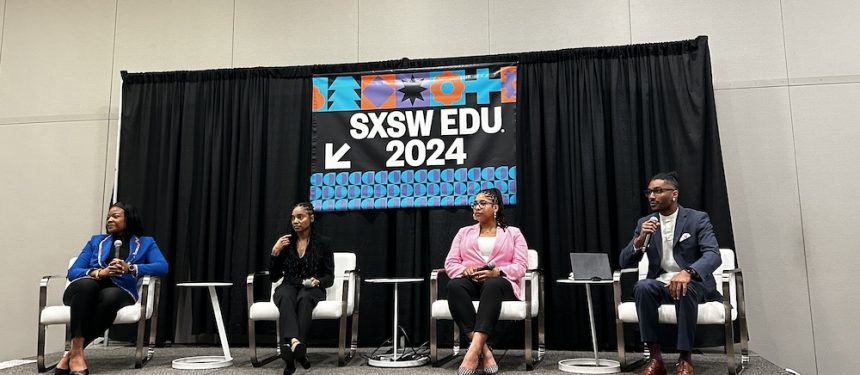On a panel advocating for black students studying abroad at the SXSW Edu Conference in Austin, two professors and one student spoke of the barriers that need to be overcome to get more black students on to study abroad programs.
They are often not afforded the same opportunities to take a study trip abroad because of financial aid barriers – but it’s also things that others would not think are an issue that may also cause roadblocks for students, explained said Henrietta Wright, a professor at Morgan State University in Maryland.
“Many of the students in Baltimore have never even travelled out of the city – and you’re asking me to take them to a state that they’ve never been to, to an airport they know nothing about?
“The logistics is one thing that matters – even the fact that these kids are trying to take a bus to the airport because they live in the city as opposed to having a parent drop them off. Logistical access is a barrier,” Wright said.
Lisa Hopson, director of global engagement at Virginia State University, said that familial support knowledge is also a key factor which comes up for black students.
“If students don’t know about it at home, if their friends aren’t doing it, then they don’t see it [as an option].
“In 2024 there are many melanated kids in urban environments that have not left their neighbourhood and are blessed if they can go to college and successful.”
Hopson explained that often even if the student gets in front of the right person who presents study abroad as an option, they tell their parents, who can be wary, especially of how their child might be received in a foreign country.
“Those parents want to know about their experience,” Wright said.
“I took it upon myself to speak to a student – I said they could give me call and talk about it. Not only that, I talk to the mom and dad and the grandmother. They all wanted to make sure that their son was going to be okay with me,” she noted about one student who joined the Morgan State trip to London, Paris and Amsterdam.
Another issue lies in what the students do on their study abroad experiences that lends to their own life experience.
“On that trip we went to Brixton, and I really loved that. The town, the area, the community have really felt like home,” noted Ariyana Griffin, a student at Morgan State who also attended the trip.
Griffin added that another way to help black students afford study abroad is to plan it further in advance.
“My payment plans are affordable, and it’s something I’m able to work with – and it’s not a burden on me or my family”
“At the end of 2023, we came back from London, Paris and Amsterdam, and we were immediately given the opportunity to sign up for [another trip to Egypt],” Griffin said.
“So as you can imagine, I now have time; my payment plans are affordable, and it’s something I’m able to work with – and it’s not a burden on me or my family.”
Hopson noted that study abroad programs were “never created with melanated people in mind”, and urged universities across the US to look at what they actually mean by a “standard experience”.
“We all have a responsibility in our roles in making sure that we educate and we change practices.
“One of the barriers is that maybe we’re not doing programs that resonate with students of colour – we’ve had these standard industries that have always been and always will be.”




